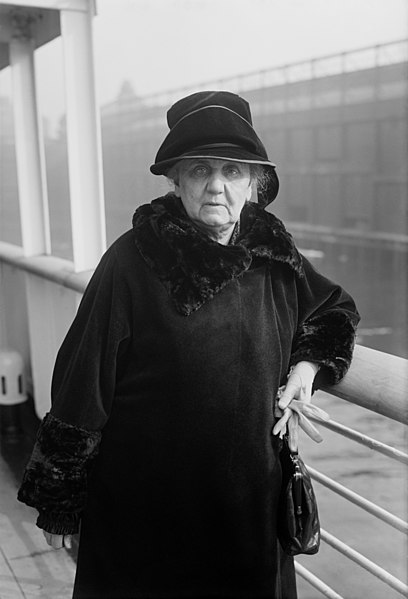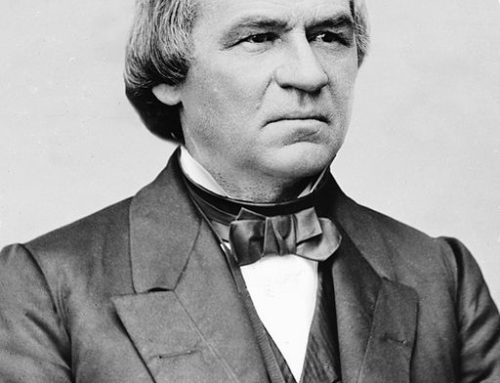It would be fun to speculate why some of the truly great Americans are forgotten within one hundred years of their life. Jane Addams by any definition should be an icon that we pay homage to and yet her name except maybe in Chicago is unknown. She received the Noble Peace Prize for her tireless crusades for social reform and peace. Eleanor Roosevelt described her as the “greatest living woman.” She founded the Hull House, a pioneer settlement house that blazed the trail for a scientific approach to the relief of poverty and suffering and was the parent of much of the social legislation passed in the United States from 1900 to 1940.
Miss. Addams was devoted to the cause of social and political reform, to the betterment of the economic condition of the masses, to world peace and to internationalism. President Roosevelt, President Masaryk of Czechoslovakia, Prime Minister Ramsey Mac Donald and many other notables visited the Hull House to gain first hand knowledge of its care for the downtrodden. The Hull House served as an oasis in Chicago during the depression. None of us today have first hand acquaintance with the horrors of the depression. While I have read many statistics about its social ravages, my one clear memory is reading that in Chicago for years squatters had certain privilege locations in the city’s garbage dumps!
Ms. Hull allowed the Hull House to house meetings of many radical groups. Despite not being a member of many of these groups she encouraged their expression. Her strong stand against our participation in World War I stirred enmity. Nevertheless, within a short time after termination of World War I, her purity of purpose and character were again fully recognized.
Ms. Hull for the most part chose Progressive allies in the Democratic and Republican parties to crusade for women’ rights, the abolition of child labor, suffrage, unemployment insurance and other social reforms. She seconded the nomination of Theodore Roosevelt in 1912 for the Presidency by the Progressive Party. She was an avid support of Robert La Follette.
Ms. Hull came from a prominent Illinois family. Her father was a close friend of President Abraham Lincoln. Despite her privileged background, she determined after graduating from college to devote her life to the poor. In 1889, Miss Addams and Miss Ellen Starr founded the Hull House in the midst of one of the most miserable slums of Chicago. She resided in this home until her death in 1935. Ms. Addams held welcoming arms to strangers—Poles, Jews, Russians, Italians, Greeks, Germans, Irish, and Negroes. Famous people such as Mackenzie King, later Premier of Canada, and John Dewey lived with her at Hull House.
At Hull House, there was a gymnasium, a penny savings bank, a circulating library, and an employment bureau. Ms. Hull was so disturbed by the neighborhood that she took on the duties of garbage inspector until a politician coveted it for one of his henchmen. Alas, the “political termites” are most rapacious both at the top and at the bottom.
As I indicated at the beginning of these comments, Ms. Hull is largely forgotten except possibly in Chicago. I was happy to read about her accomplishments when reading a book on the New Deal, but saddened to think this inspirational person is truly a footnote in history.




